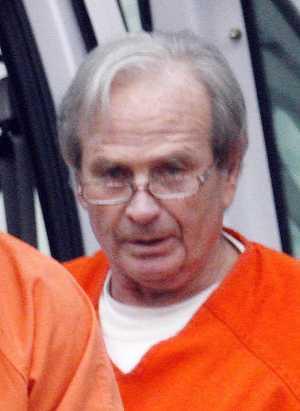
Paul Minor
Paul Minor, the Mississippi lawyer who is in federal prison from a Bush-era prosecution that closely mirrors that of former Alabama Governor Don Siegelman, has filed a second petition to have his appeal heard by the U.S. Supreme Court. (See a copy of the petition at the end of this post.)
The nation's highest court declined to hear Minor's initial petition for certiorari review in 2010. But that petition came before the court's ruling in a case involving former Enron executive Jeffrey Skilling, redefining the federal law on honest-services fraud.
In Skilling v. United States, 130 S. Ct. 2896 (2010), the court established a "uniform national standard" for honest-services fraud, and it includes only cases that involve kickbacks and bribes under federal law. Minor and two codefendants, former state judges Wes Teel and John Whitfield, were convicted under jury instructions that said the right to honest services is defined by Mississippi bribery law.
The Minor defendants filed motions with the U.S. Fifth Circuit Court of Appeals, seeking to have their convictions overturned because Skilling represented "an intervening change of law that rendered the indictment and jury instructions erroneous." The Fifth Circuit denied those motions in August 2012, and Minor now appeals that ruling.
Minor and Wingate remain in prison after being sentenced in September 2007. Teel was released after completing his sentence in 2012.
Minor's second petition to the high court is governed by Supreme Court Rule 10(a), which holds that certiorari review is appropriate when a court of appeals has "so far departed from the accepted and usual course of judicial proceedings . . . as to call for an exercise of this Court's supervisory power."
Albert Alschuler, a professor emeritus at the University of Chicago Law School, represents Minor in the current appeal. Alschuler is the author of a friend-of-the-court brief the Supreme Court cited favorably in Skilling.
Minor's new brief argues that the Fifth Circuit, in failing to overturn his conviction, failed to abide by the controlling authority of the Supreme Court's finding in the Skilling case:
Skilling's holding was clear: The law of honest-services fraud does not vary from state to state. The Fifth Circuit's disregard of this holding warrants summary reversal. . . .
The Fifth Circuit's contradiction of Skilling will produce serious inequalities in the application of federal law. State bribery laws differ substantially from one another, both nationally and within the circuit. The Fifth Circuit not only has upheld honest-services instructions grounded on state bribery law; relying on its decision in this case, it also has held honest-services instructions based on federal bribery law erroneous. . . .
In light of both of these rulings, courts within the circuit will ground honest-services instructions on state law until the Court corrects the error. No other circuit has suggested that state law still defines the right to honest services after Skilling.
Here is a copy of Paul Minor's second petition for certiorari to the U.S. Supreme Court:
Paul Minor-SCOTUS Petition2
